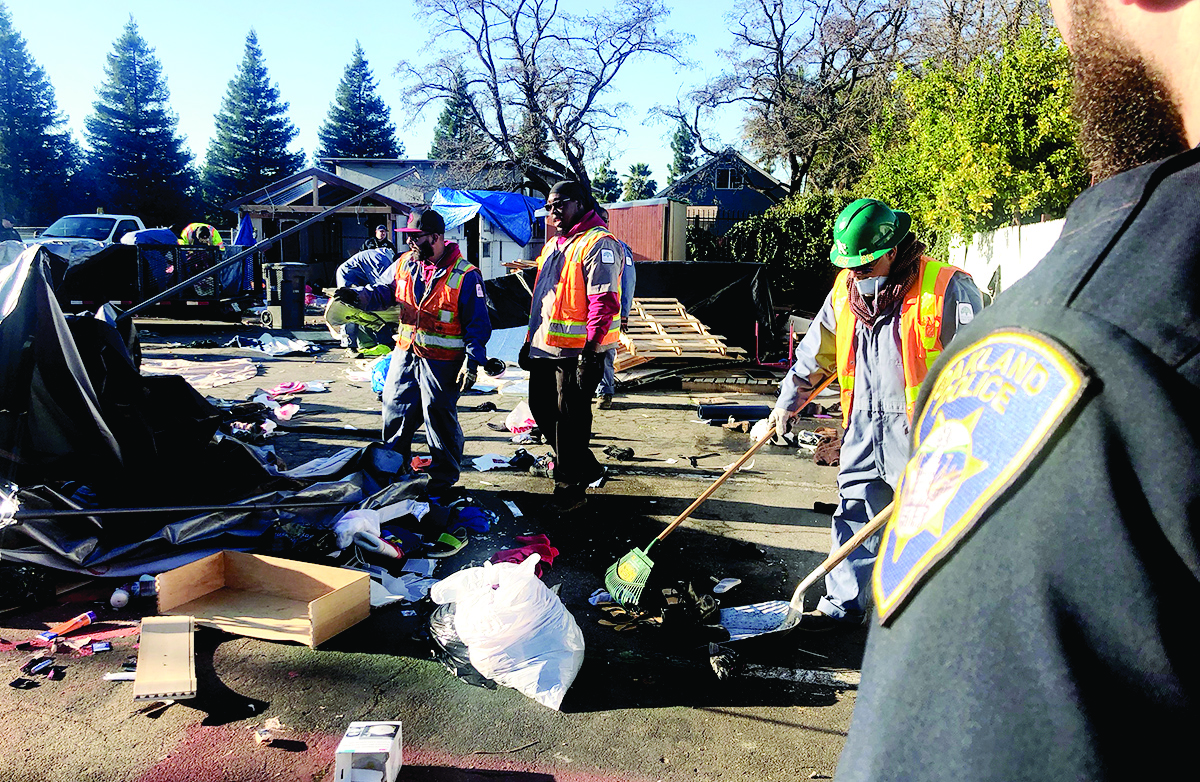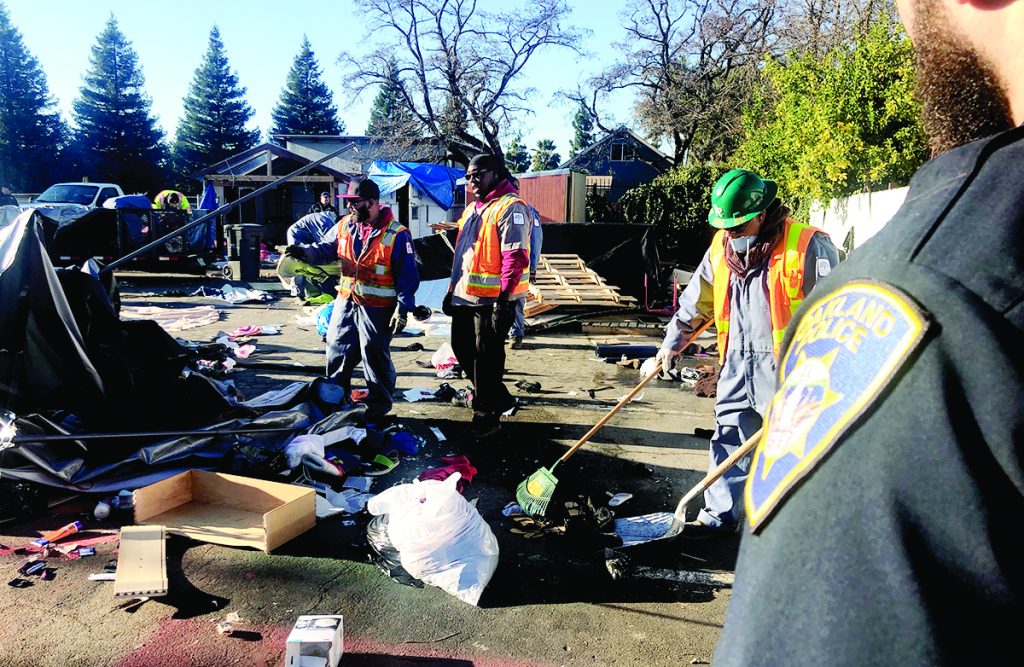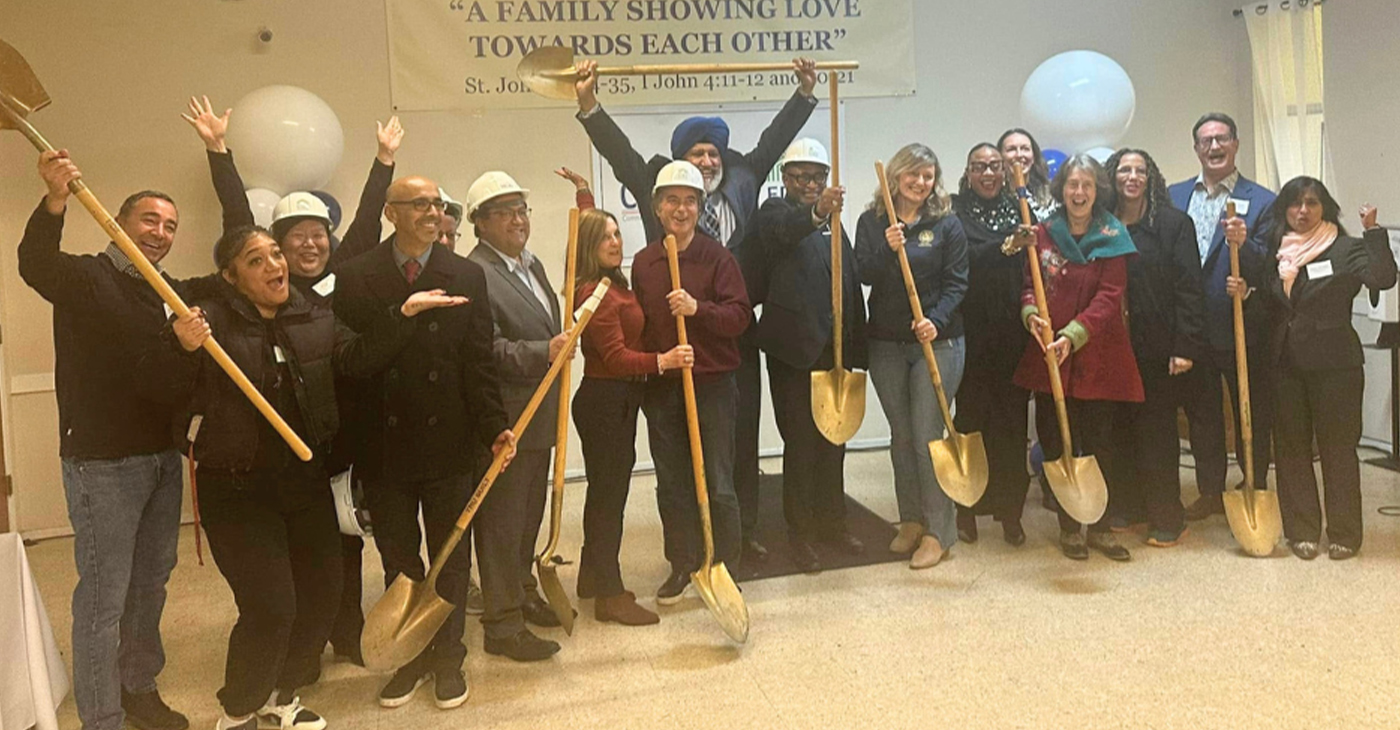Housing
Report: How to House Oakland’s Unhoused Within Six Months

The following is the third part of a series profiling the new report from the Dellums Institute/Just Cities for the Housing and Dignity Project led by The Village and East Oakland Collective, Housing Oakland’s Unhoused, focuses on what we’ve all been waiting for—solutions to Oakland’s new homelessness crisis.
The Housing Oakland’s Unhoused Report very powerfully establishes that the traditional approach to homelessness does not address today’s realities where the majority of the homeless only need housing, rather than intensive services, and the costs and time needed to build multi-family housing is insufficient. Instead, the report offers innovative solutions that would result in providing safe, dignified, and affordable housing to over 2,000 people within 6 months, IF the political will in City Hall and the County exists.
Perhaps the innovativeness of the solutions comes from the fact that the Dellums Institute and the Goldman School for Public Policy partnered with unhoused people and activists from The Village and the East Oakland Collective.
This authentic participatory research model relied directly on the voices, experiences, and brilliant ideas from the people most impacted by the housing crisis. Different from most government community “input” sessions, the research findings and final recommendations were then vetted and approved by the same unhoused people and activists.
The report’s Short Term Solutions are implementable within 6 to 12 months. They include low cost and immediate housing building models such as tiny, mobile, or container homes which cost between $7,500 to $35,000 to build, including infrastructure costs.
The report states that it would cost around $23 million to immediately build 1,600 new housing units that could provide dignified housing for 2,000 people.
The report identifies specific resources that are currently available to implement this critical plan, including available public land parcels and new monies for homeless housing from the City, County, and State.
Not stopping at short-term solutions, the Housing Oakland’s Unhoused Report also lays out Long Term Solutions to build 2,000 units of permanent housing for extremely low income to no income residents.

City workers and police officers evict homeless residents Thursday afternoon from Housing and Dignity Village, an encampment of 13 women and children on city-owned land at Edes and South Elmhurst avenues in East Oakland. Photo by Amir Saadiq.
These longer term solutions include the traditional multi-family housing model that would cost a public subsidy of about $150,000 per unit.
In addition, the report recommends utilizing alternative housing models that are cheaper and faster to build such as container, modular, and prefab homes, which would range from $13,500 to $125,000 of public subsidy per unit.
The report also identifies new funds for implementing these long-term solutions such as the new County Measure A1 funds and the City’s new ballot measures increasing the real estate transfer tax on properties selling for over $2 million championed by Councilmember Dan Kalb and also the new vacant lots tax championed by Councilmember Rebecca Kaplan.
Ultimately, the Dellums Institute’s Housing the Unhoused Report for the Housing and Dignity Project represents a call to action for all of us who care about Oakland.
No longer can we turn away from the growing homeless crisis, throwing up our hands and saying that there’s nothing we can do. There’s plenty of strategic solutions available. All it takes is political and moral leadership.
Let’s exercise our rights in a democratic society and call our elected officials to implement the Housing and Dignity Project’s solutions designed by unhoused people.
See the full report on the Dellums Institute’s website at http://dellumsinstitute.org/community-justice-data/
Activism
Port of Oakland to Host January Meeting for Interfaith Council of Alameda County
State, county, and city officials have been invited to join ICAC board members and the community to explore effective strategies for addressing these interconnected challenges across Alameda County, including ICAC’s Safe Car Park program expansion and efforts to convert trailers into shelter for the unhoused.

Special to The Post
The Interfaith Council of Alameda County (ICAC) will hold its first meeting of 2025 on Thursday, Jan. 9, at the Port of Oakland, located at 530 Water St. Hosted by the president of the Port of Oakland, the meeting will run from 1-2:30 p.m. and will focus on pressing community issues including environmental justice, housing solutions, and crime and safety.
State, county, and city officials have been invited to join ICAC board members and the community to explore effective strategies for addressing these interconnected challenges across Alameda County, including ICAC’s Safe Car Park program expansion and efforts to convert trailers into shelter for the unhoused.
All are welcome and encouraged to attend and contribute to this important discussion. For more information, visit interfaithAC.org.
Activism
Groundbreaking of Legacy Court to Bring Affordable Housing to North Richmond
A Dec. 16 ceremony marked the groundbreaking for the development, which will offer affordable housing to 42 low-income households earning between 30% to 60% of the area’s average income, as well as 13 units for “residents experiencing homelessness, those at risk of homelessness and individuals in need of mental health services,” the partners said in a statement. The development will be located at 1267 Fred Jackson Way in North Richmond.

By Kathy Chouteau, The Richmond Standard
Community Housing Development Corporation (CHDC) and Eden Housing recently celebrated the groundbreaking of Legacy Court, a development that will bring affordable housing to North Richmond for low-income households and those experiencing homelessness.
A Dec. 16 ceremony marked the groundbreaking for the development, which will offer affordable housing to 42 low-income households earning between 30% to 60% of the area’s average income, as well as 13 units for “residents experiencing homelessness, those at risk of homelessness and individuals in need of mental health services,” the partners said in a statement. The development will be located at 1267 Fred Jackson Way in North Richmond.
Residents will have access to a variety of amenities such as a community room, community kitchen, laundry facilities, computer lab with high-speed internet and bike parking. Legacy Court will also be wholly electric with energy-efficient appliances and other green elements, with the aim of reducing the project’s carbon footprint.
Residents needing mental health services and related support will have access to Contra Costa Behavioral Health Services on-site.
Activism
OPINION: Solutions to the Housing Crisis Exist, but Governments Waste Tax Dollars Instead
People who are homeless want real housing, not temporary shelters that are dangerous and crowded. The City of Oakland has been telling the public that the sweeps of encampments are an effective solution, but it just pushes people from block to block, wasting tax money on paying police officers overtime in a budget crisis. This is true at the state level too, where California spends $42,000 per person that is unhoused per year. The city and state could just help pay residents’ rent, rather than pay for police to harass people on the streets, many of whom have disabilities or are elders.

By Kimberly King and Victoria King
In a powerful demonstration of grassroots organizing, activists joined forces in direct action that started on Dec. 17 to call for the establishment of sanctuary communities across the West Coast
The goal of the effort is to raise awareness about misleading narratives around homelessness and to present concrete solutions to a crisis that leaves over 35,000 people unsheltered each night in the Bay Area.
The action, led by members of Oakland’s Wood Street Commons and Homefullness/Poor Magazine, represents a direct response to the U.S. Supreme Court and Gov. Gavin Newsom’s approach to homelessness. At the core of the movement is a fundamental truth: housing is a human right, not a commodity to be bought and sold for profit.
People who are homeless want real housing, not temporary shelters that are dangerous and crowded. The City of Oakland has been telling the public that the sweeps of encampments are an effective solution, but it just pushes people from block to block, wasting tax money on paying police officers overtime in a budget crisis. This is true at the state level too, where California spends $42,000 per person that is unhoused per year. The city and state could just help pay residents’ rent, rather than pay for police to harass people on the streets, many of whom have disabilities or are elders.
The coalition of organizations, led by people with lived experience of homelessness, coordinated their efforts to show the unity behind this movement, including setting up sweeps-free sanctuary communities and resource centers and presenting solutions to city council. The message is clear: unhoused residents refuse to remain invisible in the face of policies that have resulted in 347 deaths for people experiencing homelessness in Alameda County just this year alone.
The coalition presented four key demands, each addressing different aspects of the housing crisis. First, they called for the establishment of sanctuary communities instead of sweeps, urging the redirection of encampment management funds toward positive solutions like encampment upgrades and permanent low to no-income housing.
The second demand focuses on utilizing public land for public good, specifically identifying vacant properties like the Hilton Hotel on Port of Oakland land. The coalition emphasized the immediate availability of these spaces to house hundreds of currently unhoused residents.
Prevention forms the third pillar of the coalition’s demands, with calls for strengthened renter’s rights, rent subsidies, and a permanent moratorium on rental evictions and foreclosures for non-payment.
Finally, the coalition demands the defunding of coercive “Care Courts,” advocating instead for non-carceral approaches to mental health care and harm reduction.
The Poor People’s Campaign’s motto, “When we lift from the bottom, no one gets left behind,” encapsulates the spirit of the action. Daily activities, including opening prayers for those who have died while homeless, served as powerful reminders of the human cost of failed housing policies that treat housing as a commodity rather than a fundamental right.
As this crisis continues to unfold, these activist groups have made it clear that the solution to homelessness must come from those most directly affected by it.
About the Authors
Kimberly King and Victoria King are Oakland Residents who advocate for the unhoused and propose solutions to end homelessness and housing insecurity.
-

 Activism3 weeks ago
Activism3 weeks agoBooks for Ghana
-

 Arts and Culture4 weeks ago
Arts and Culture4 weeks agoPromise Marks Performs Songs of Etta James in One-Woman Show, “A Sunday Kind of Love” at the Black Repertory Theater in Berkeley
-

 Bay Area3 weeks ago
Bay Area3 weeks agoGlydways Breaking Ground on 14-Acre Demonstration Facility at Hilltop Mall
-

 Activism4 weeks ago
Activism4 weeks ago‘Donald Trump Is Not a God:’ Rep. Bennie Thompson Blasts Trump’s Call to Jail Him
-

 Activism3 weeks ago
Activism3 weeks agoLiving His Legacy: The Late Oscar Wright’s “Village” Vows to Inherit Activist’s Commitment to Education
-

 Arts and Culture3 weeks ago
Arts and Culture3 weeks agoIn ‘Affrilachia: Testimonies,’ Puts Blacks in Appalacia on the Map
-

 Alameda County3 weeks ago
Alameda County3 weeks agoAC Transit Holiday Bus Offering Free Rides Since 1963
-

 #NNPA BlackPress4 weeks ago
#NNPA BlackPress4 weeks agoCalifornia, Districts Try to Recruit and Retain Black Teachers; Advocates Say More Should Be Done


















































